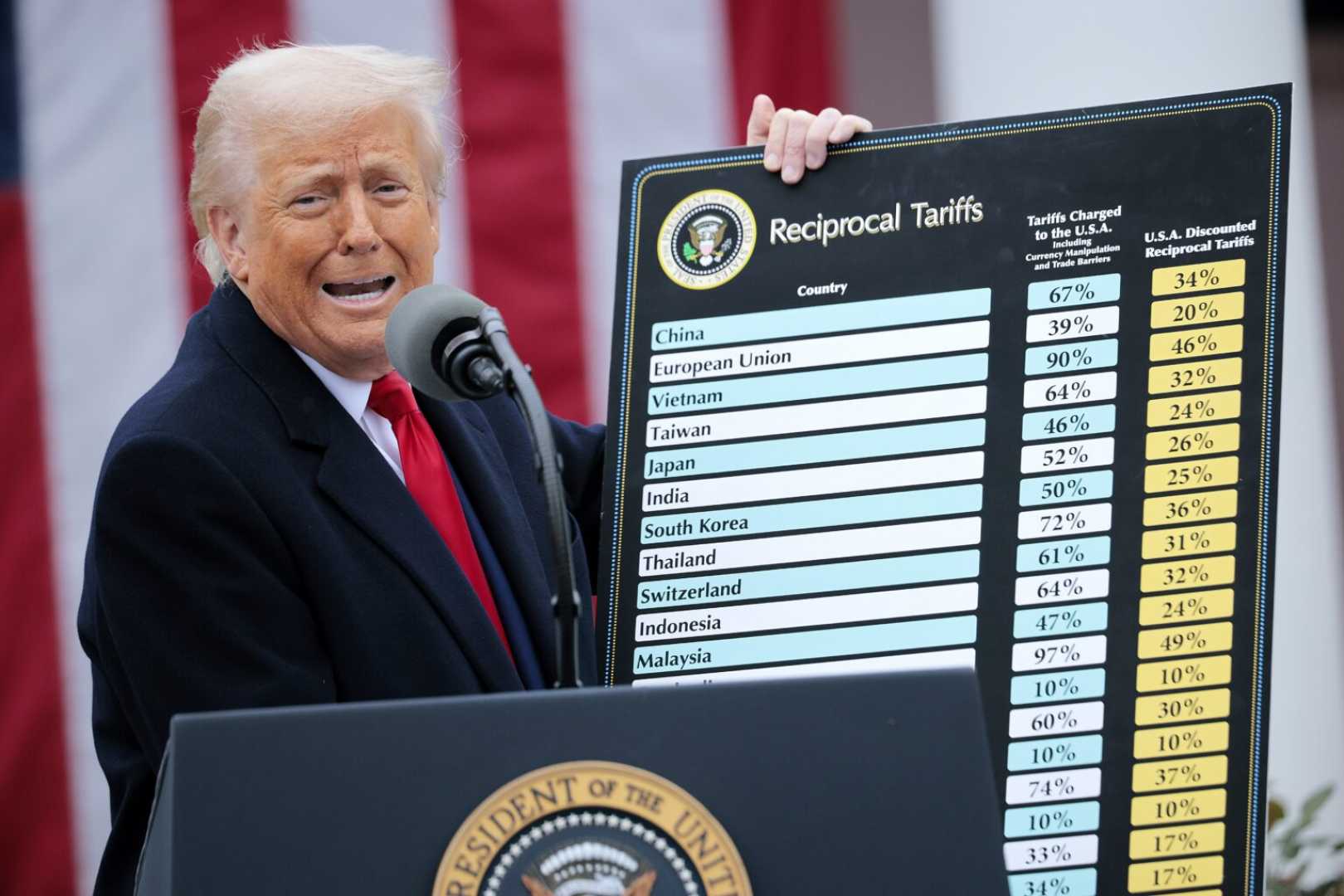Politics
Trump Pauses Tariffs, Escalates Trade War with China

WASHINGTON, D.C. — President Donald Trump announced a significant shift in his tariff policy on April 10, 2025, declaring a 90-day moratorium on higher tariffs for most trading partners while simultaneously increasing tariffs on Chinese imports to an unprecedented 145%.
This decision comes in the wake of escalating tensions between the United States and China, which have intensified in recent weeks. Trump’s new tariffs on China include a 125% increase on many goods, compounding an earlier 20% fentanyl-related tariff implemented in February. Trump’s revised approach aims to balance trade while addressing what he calls unfair trade practices by foreign nations.
On Capitol Hill, the House successfully passed a budget resolution with a narrow vote of 216-214, securing funding for Trump’s domestic initiatives despite opposition from hard-line Republicans. House Speaker Mike Johnson, R-La., praised the budget’s passage, suggesting it lays the groundwork for significant tax and regulation changes. “This blueprint sets the stage for one of the greatest and most important signings in the history of our country,” Trump stated in a social media post following the legislative success.
Treasury Secretary Scott Bessent echoed Trump’s sentiments, stressing the resolution reflects a commitment to “certainty, simplicity, and stability” in the American economy. According to Bessent, these changes aim to unlock long-term prosperity for all Americans.
Amidst these developments, Trump is scheduled to meet with his Cabinet Thursday morning as he seeks to clarify prospective strategies in light of geopolitical tensions. However, skepticism persists among certain Republicans regarding the economic implications of ongoing tariffs. Senator Bill Cassidy, R-La., expressed reservations about rising national debt, warning that not adequately addressing fiscal issues could harm the economy.
Democrats in Congress remain critical of Trump’s tariff strategies and budget proposals, with Senate Minority Leader Chuck Schumer, D-N.Y., targeting proposals deemed harmful to social programs, including cuts affecting veterans and Medicare. “The Republican bill is poison,” Schumer claimed, accusing the majority party of ignoring critical issues affecting the fabric of American society.
Potential impacts of Trump’s policies have begun to manifest in the stock market, which has experienced significant declines in response to the tariff announcement. Wall Street analysts have raised concerns regarding a potential recession, predicting that sustained tariff increases could severely disrupt economic growth.
In response to mounting concerns about the economic fallout, several lawmakers have begun advocating for increased congressional oversight of tariffs. Republicans, including Rep. Don Bacon, R-Neb., have expressed a desire to introduce legislation requiring congressional approval for tariffs that exceed a 60-day implementation period.
Furthermore, amid increasing tensions, law enforcement has reported a rise in threats against Trump. In a troubling incident in Jupiter, Florida, a man faced charges for making threats against the president through social media. The Secret Service confirmed the swift response to ensure Trump’s safety.
As Trump continues to navigate these complex political and economic challenges, both supporters and critics alike are watching closely, awaiting his next moves in a turbulent landscape of domestic and foreign trade relations.












